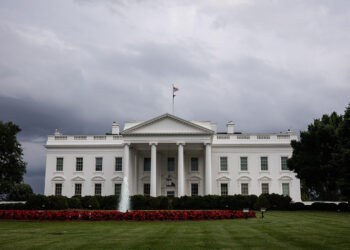
- Men who avoided prostate cancer screening were significantly more likely to die from the disease, according to a large European trial.
- The reasons for ignoring screening are complex but may be related to a lack of education about the risks and benefits of prostate cancer screening.
- Prostate cancer is the second most common cancer in males after skin cancer.
Men who avoid prostate cancer screening face a significantly greater risk of dying from the disease, concludes a large European trial. Yet questions remain about why some males are hesitant to attend screenings and what can be done to encourage them.
Given the opportunity to screen for prostate cancer with a
Researchers performed a subanalysis of the massive study, which included the participation of more than 72,000 males invited for prostate cancer screening and 20 years of follow-up.
The results indicate that roughly 1 in 6 males (over 12,400) skipped all of their screening appointments, leading to a 45% higher risk of death from prostate cancer compared to those who did attend their screenings.
“There’s good evidence that it prevents deaths. But the concern has always been that the side effects create an unclear balance of benefits to harms,”
“These findings, in a very large study with a very long-term follow-up, show a pretty dramatic benefit of screening,” he said.
Researchers from the Department of Urology, Erasmus MC Cancer Institute at the University Medical Center Rotterdam, The Netherlands, dubbed their analysis “The good, the bad, and the ugly,” as their findings identified benefits to PSA testing, but also significant barriers due to patient behavior.
Participants, consisting of males ages 55 to 69 years old, were randomized to one of two groups: those who were invited to attend screening appointments and those who were not (the control group).
Among the males invited to the screenings, a significant portion, dubbed “non-attenders,” skipped their screenings.
The so-called non-attenders were significantly more likely to die from prostate cancer than those who did attend. However, the findings get even more interesting compared to the control group.
Males who attended the screenings had a 23% lower risk of dying from prostate cancer compared to the control, while non-attenders had a 39% higher risk.
Furthermore, the benefits of screening are also likely understated due to the study design, which analyzed the entire group invited to screen, regardless of whether they actually attended.
“Non-attenders can dilute the benefit of screening when the data is analyzed. It’s a downward drag on the outcome of those who are randomized to screening and actually show up in the first place,” said Geoffrey Sonn, MD, an associate professor of urology at Stanford Medicine who wasn’t affiliated with the research.
The flip side of this is that males who decline screening have a stark increase in risk of dying from prostate cancer compared to those who attend.
“This is the type of long term, randomized data that helps to put to rest the prior concerns that PSA testing may not be effective,” Jeffrey Tosoian, MD, MPH, an assistant professor of urology and director of Translational Cancer Research at Vanderbilt University Medical Center, told Healthline. Tosoian wasn’t involved in the study.
“Ultimately, the challenge lies in translating theoretical strategies into practice in a feasible and sustainable way to reach men across different populations and cultural and socioeconomic backgrounds,” lead study author Renée Leenen, MD, a PhD candidate in urology at Erasmus MC Cancer Institute, University Medical Center Rotterdam, Department of Urology, Rotterdam, The Netherlands, told Healthline.
The reasons why men might skip prostate cancer screening are complex; they also fall outside the scope of the current research. However, experts interviewed by Healthline offered a range of reasonable possibilities.
“There may be something that’s just different about a person who’s involved in a trial and told to do one thing that just doesn’t come in to be seen. They may not take as good a care of themselves in general,” said Sonn.
That is, males who choose to skip a screening might be “care avoidant,” opting to forego preventive care and other healthy behaviors.
Tosoian suggested that outdated or incorrect information about PSA testing could also be a factor in dissuading men from attending.
“Perhaps some heard years ago that PSA screening might not be helpful, and that really stuck with them, so they’ve never really looked into it again,” he said.
Leenen noted some of the most common barriers also include:
- Practical concerns, such as time and money to attend screening.
- Not understanding risks of prostate cancer.
- Lack of knowledge about screening (especially in younger males).
Globally, there are roughly 1.4 million new prostate cancer cases yearly, but according to
With cases surging, what strategies can be adopted to address the 1 in 6 males who actively choose to avoid screening?
“A big component of this is education and the need for the population to understand the risk that prostate cancer poses,” said Tosoian.
Although
According to Leenen, the most important factor in getting men to attend screening is the social aspect.
If a friend or partner prompts a man about screening, they are more likely to investigate it. Having a loved one or family member with cancer may also encourage men to seek screening.
Leenen cited education on prostate cancer risks, doctor-recommended screening, and prioritizing self-care as potentially motivating factors.
“Of these, the role of partners is particularly important in men undergoing screening for prostate cancer,” Leenen said.
Source link : https://www.healthline.com/health-news/avoiding-prostate-screenings-raises-death-risk
Author :
Publish date : 2025-03-27 07:36:08
Copyright for syndicated content belongs to the linked Source.














